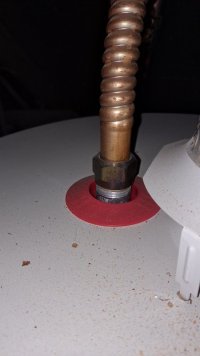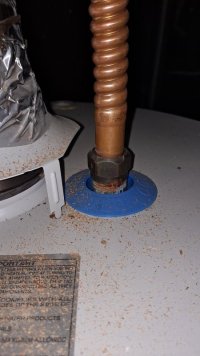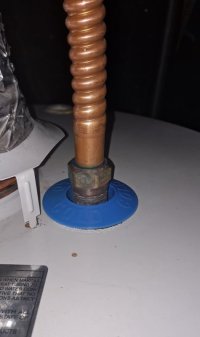PDupuis
New Member
I have a Smith 40 Gallon (GVRL) Water Heater. Called them up and seems the factory anode is 16" aluminum. This unit was installed in 2014, so is 9 years old now. Hot line seems fine although you can see some corrosion on the cold line. They recommended draining the tank, flushing it if there's residue and replacing the anode as well replacing both fittings with dielectric unions.
After little research, seems the longer the anode the better. As long as it doesn't touch the bottom of the tank. I can purchase a 44" flexible anode and simply cut it to size, although would anyone know what length I should purchase for my GVRL 40? Also, I live in the Houston area with hard water and would assume that the aluminum/zink anode would be the best cost affective option?
Many experts on this site do not support dielectric unions and say to use a 6" brass or stainless nipple, which is better? The brass would screw directly into the water heater? Would you all recommend replacing the hot line connection as well, seeing that it has no corrosion? Or best just leave it?
I'm obviously very new to this and I much appreciate the help!
After little research, seems the longer the anode the better. As long as it doesn't touch the bottom of the tank. I can purchase a 44" flexible anode and simply cut it to size, although would anyone know what length I should purchase for my GVRL 40? Also, I live in the Houston area with hard water and would assume that the aluminum/zink anode would be the best cost affective option?
Many experts on this site do not support dielectric unions and say to use a 6" brass or stainless nipple, which is better? The brass would screw directly into the water heater? Would you all recommend replacing the hot line connection as well, seeing that it has no corrosion? Or best just leave it?
I'm obviously very new to this and I much appreciate the help!



